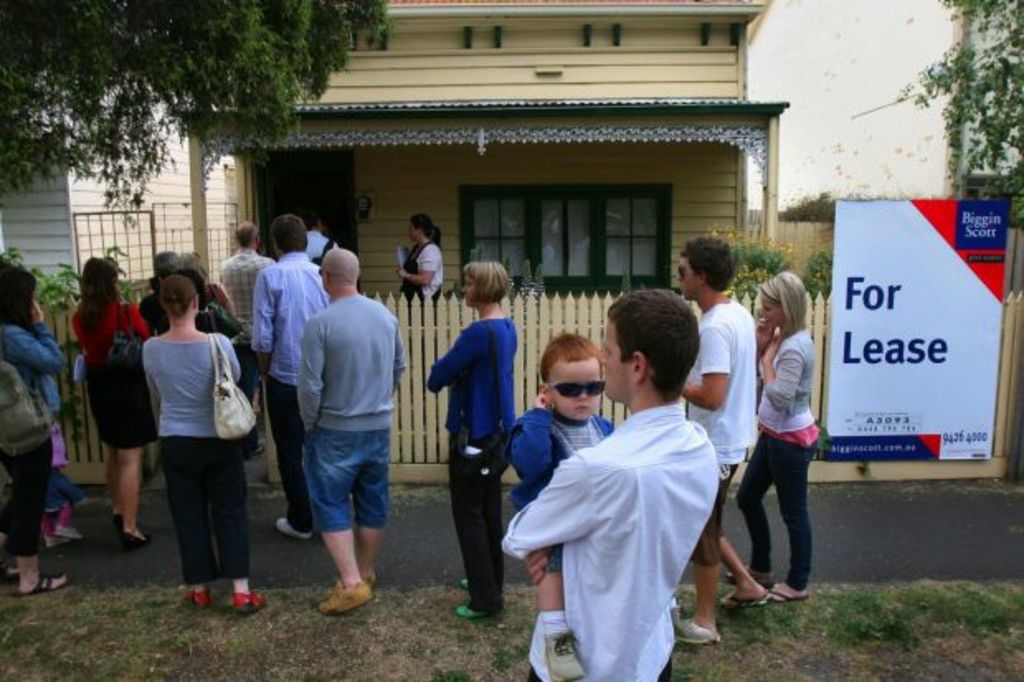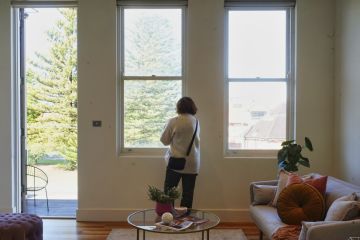How to beat the competition and secure your dream rental

In Australia’s perpetually crowded rental market, the odds of securing any sort of home – let alone one that ticks all your boxes – can seem daunting.
Fast-increasing prices and the advent of so-called “rental bidding” further complicate the picture. And during the summer months, fluctuations in stock can create wildly variable conditions from week to week.
But there is reason to be optimistic. Despite perceptions that the rental market is somehow rigged – particularly in large cities such as Sydney and Melbourne – agents and advocates say that ordinary Aussies stand a good chance of renting in 2018.
If you understand what landlords are looking for, are willing to take care during the application process and choose the most appropriate month to search, you might be surprised by what you can secure.
1. Always write a cover letter
Few agents ask for one, but including a cover letter with your application can dramatically improve your chances of securing a rental.
Crucially, a one-page cover letter can find its way to the landlord, who is almost never present at inspections but has final say over who is granted the lease.Making a personal connection with the landlord through a cover letter can be very valuable.
“Make it a good story,” says Eileen Carroll, sales director of Ray White Glebe. “Tell us why you’re the best person for the property. A little story about yourself will help your cause.”
2. Gather everything you’ll need – and then some
While some agents do not require additional documentation such as proof of ID and written references to be supplied at the time of application, Carroll says prospective tenants should submit these documents anyway.
“Have it all ready, so if you are accepted, you can actually secure the property,” she says. “If I’m chasing people for these documents before they’ve even signed the tenancy, alarm bells start to ring.”
- Related: Just because you rent doesn’t mean you can’t get into gardening
- Related: Is it ever possible to spot the dream tenant?
- Related: Tenants and landlords share their real-life renting horror stories
Providing ample references and other documents from the outset can also give you an advantage over less organised applicants.
“If someone submits an application with just a payslip from a month ago and a passport, it’s not really that interesting to me,” Carroll says. “But if the application has a covering letter, two current payslips, a personal or work reference and they’ve completed their 100 points of ID, I’m impressed.”
3. Apply online if you can
Scanning your hard-copy documents and completing an online application form may be irksome and time-consuming, but for agents it’s a godsend.
“I had eight properties open two weeks ago and I leased all of them,” explains Carroll, “so the paperwork was miles long. Online applications make my life easier.”
Most online application forms also include a section for additional comments, so make sure you use it. “The standard form we use actually asks applicants to explain why they like the property in question, and I find that really helpful,” Carroll says. “It’s the first thing I go to now in the application because it gives me a better indication of who we’re dealing with.”
4. Think carefully before offering more than the listed price
Australia’s chronic shortage of inner-city housing has led to an increase in so-called “rental bidding”: offering more than the asking price in order to beat out the competition.
Leo Patterson Ross, advocacy and research officer at the Tenants Union of New South Wales, concedes that this strategy can be effective for those who can afford it. But he cautions that rental bidding can set a dangerous precedent.
“It’s pushing up prices not only for others but for yourself,” he says. By indicating a willingness to pay more than advertised, tenants may increase the likelihood of further rent rises in future, which could ultimately make the property unaffordable.
5. Be ready to pay your deposit
Having your application approved does not guarantee that the agent will hold the property for you. “If I call someone in the morning, tell them their application has been approved and ask for their deposit, and they say, ‘Oh, I’ll pay it later this afternoon’, I automatically go to the next application,” says Carroll.
“If they’re going to pay it later that afternoon, that tells me they’re waiting on the outcome of another application or they can’t afford my property.”
Carroll says delaying payment of your deposit by even a few hours can be risky. “I don’t want to lose my other applicants waiting for a deposit to be paid. Waiting a day for the deposit could mean my other applicants have moved on to other properties.”
6. Choose the most suitable month to apply
Unlike most of the year, when the number of properties on the Australian rental market is relatively stable, the months of January, February and March vary wildly in terms of volume.
According to Domain data, rental listings are at their lowest levels between late December and late January, when much of the country is on holiday. But some rental properties are open for inspection during this time.
Carroll says house-hunting in quiet early January can mean less competition and a better chance of striking up a relationship with a rental agent.
If you’d like to maximise your options, wait until late January or early February, when many landlords return from holidays. But remember that university students house-hunt during this time, increasing competition in less expensive suburbs.
If you can afford to wait until March, you’ll find the market returning to normal levels – and there may be an opportunity to pick up a bargain rental that didn’t lease during the February rush.
7. Don’t despair if you are young or haven’t rented before
Many prospective tenants assume that age and wealth trump all other considerations in the eyes of agents and landlords. But the truth is more nuanced.
“Real estate agents and landlords are ultimately trying to assess risk when choosing applicants,” says Patterson Ross. “The factors they are mainly considering are the ability to pay the rent, and the likelihood of damage occurring to the property.”
“A previous rental history is part of demonstrating that you represent a lower risk, but you can do this in other ways as well – most likely character references from employers or other people who can talk about things like your responsibility, cleanliness and so on.”
Carroll says she has rented properties to people without employment who could demonstrate significant savings, and to others who had less money than their competition. “For me, it’s ultimately about whether the application stands out or not,” she says.
We recommend
We thought you might like
States
Capital Cities
Capital Cities - Rentals
Popular Areas
Allhomes
More







